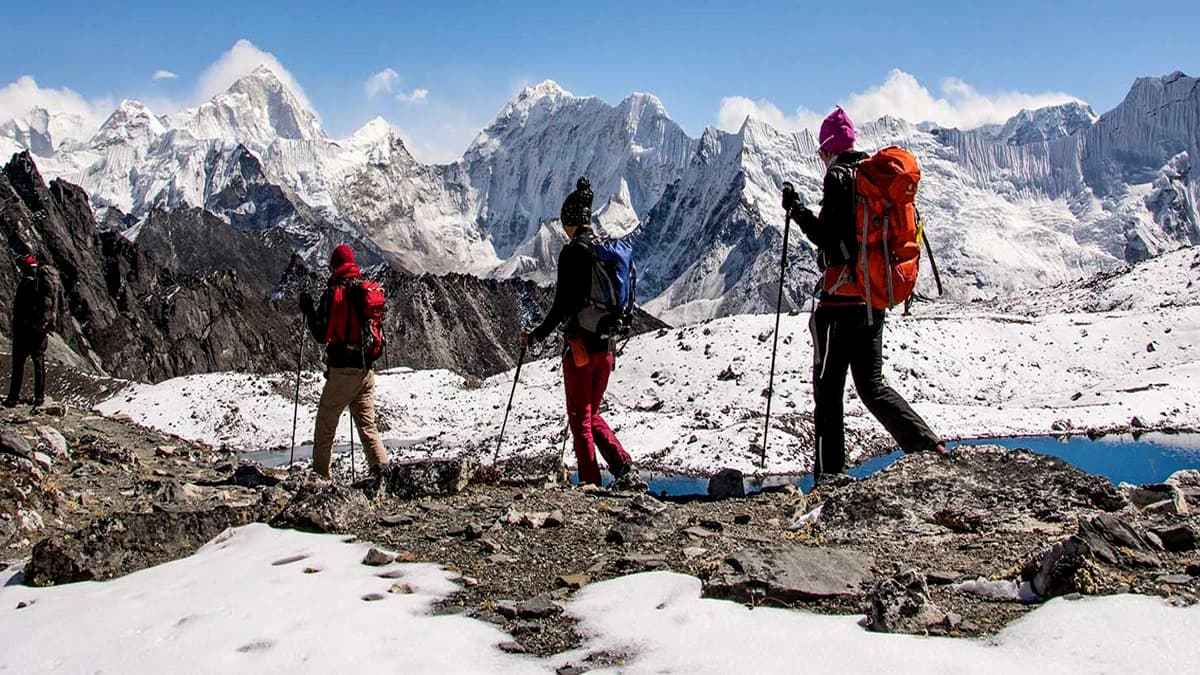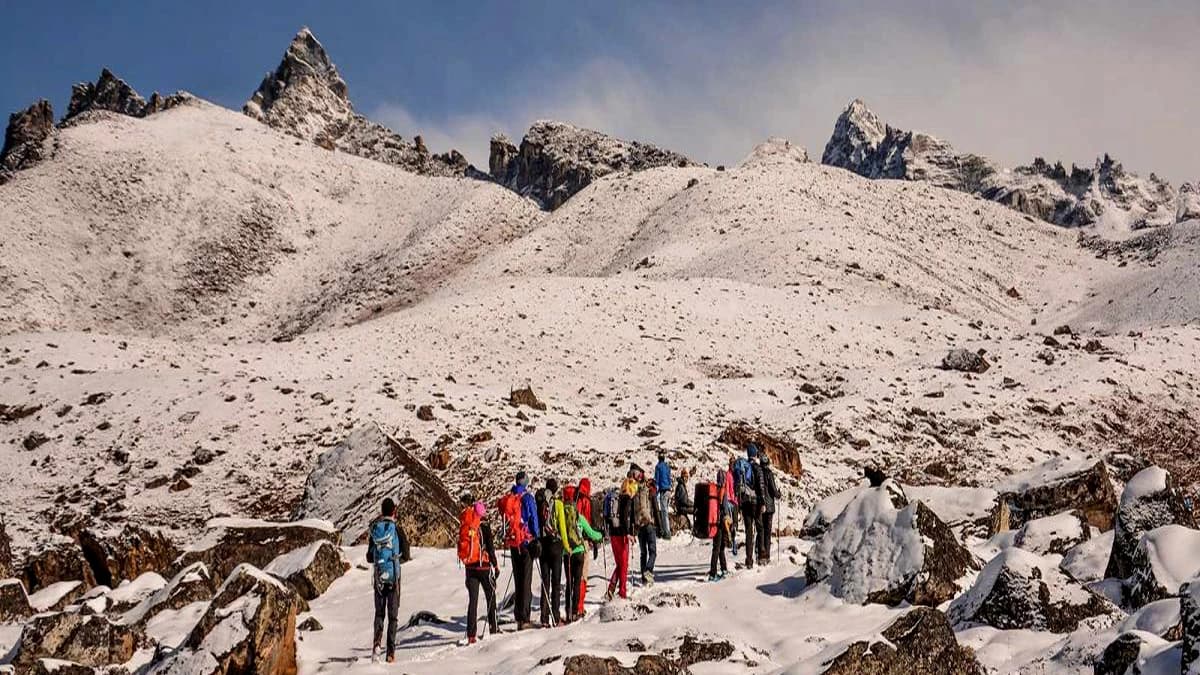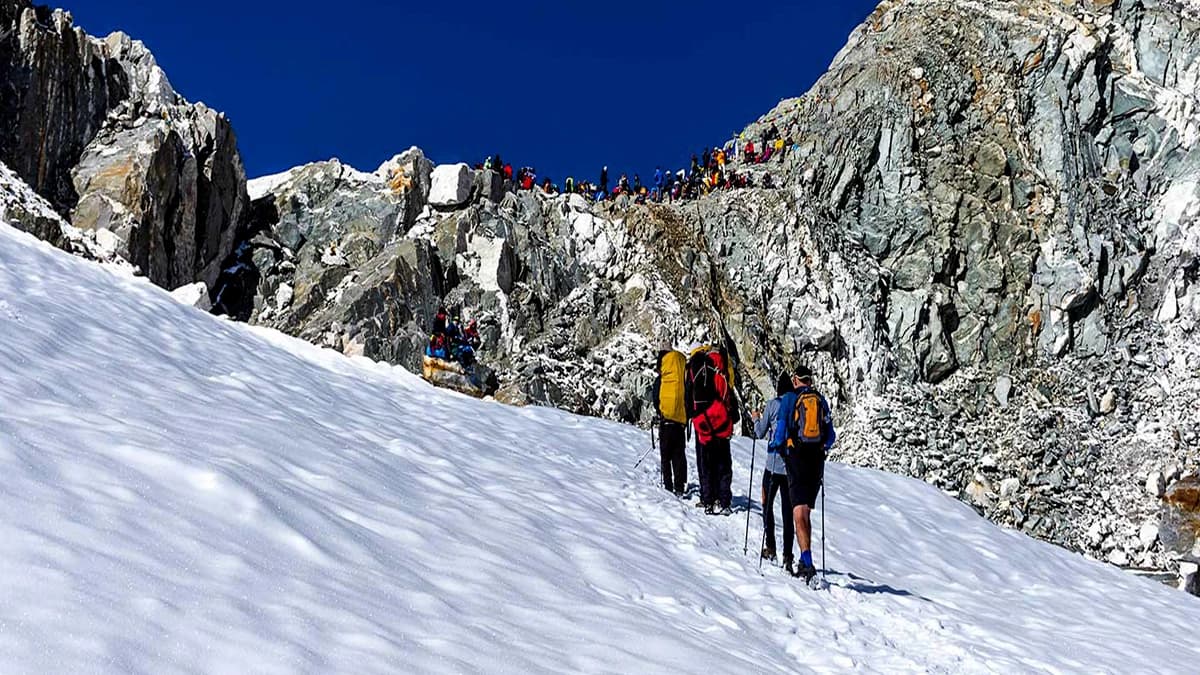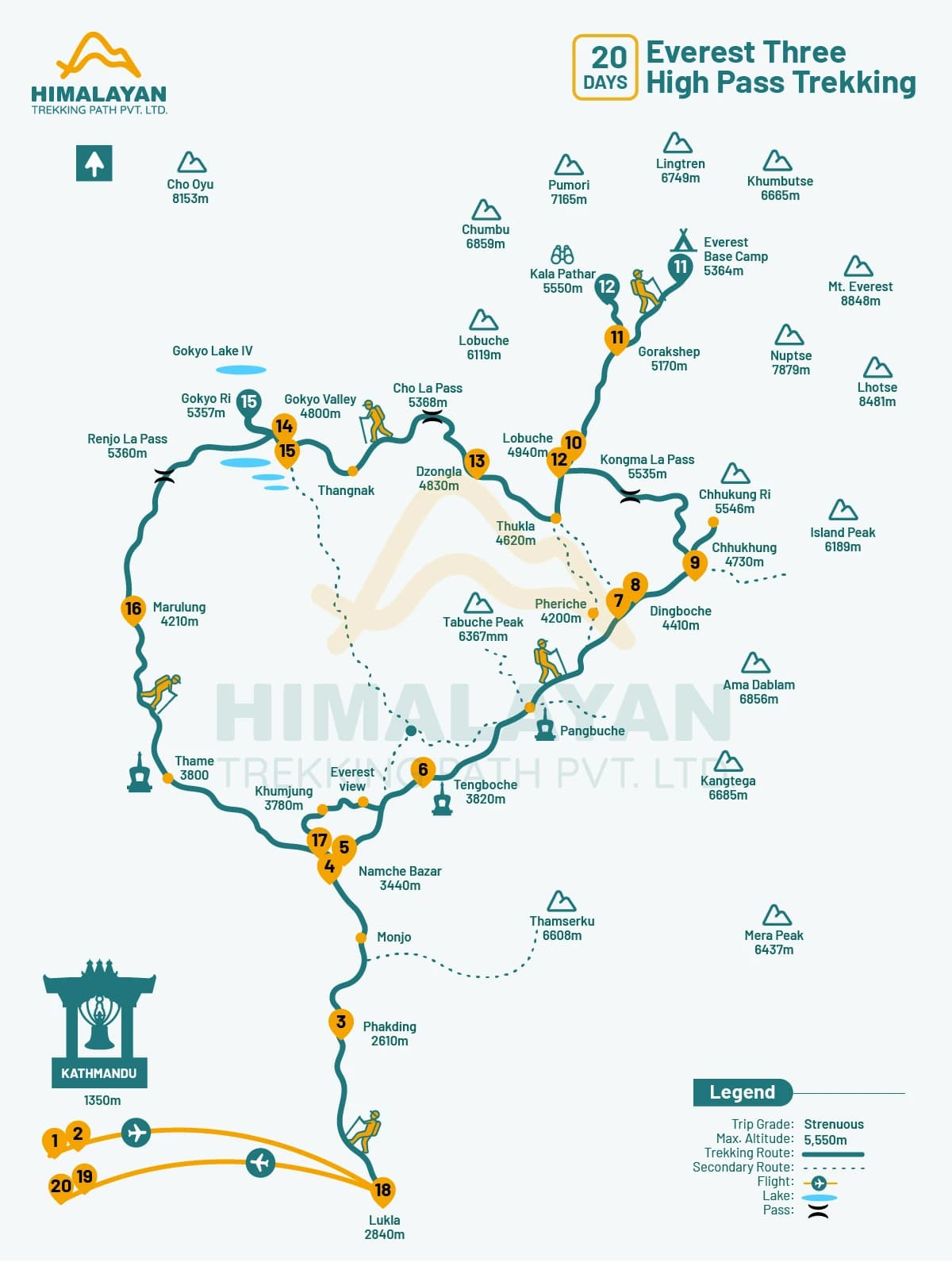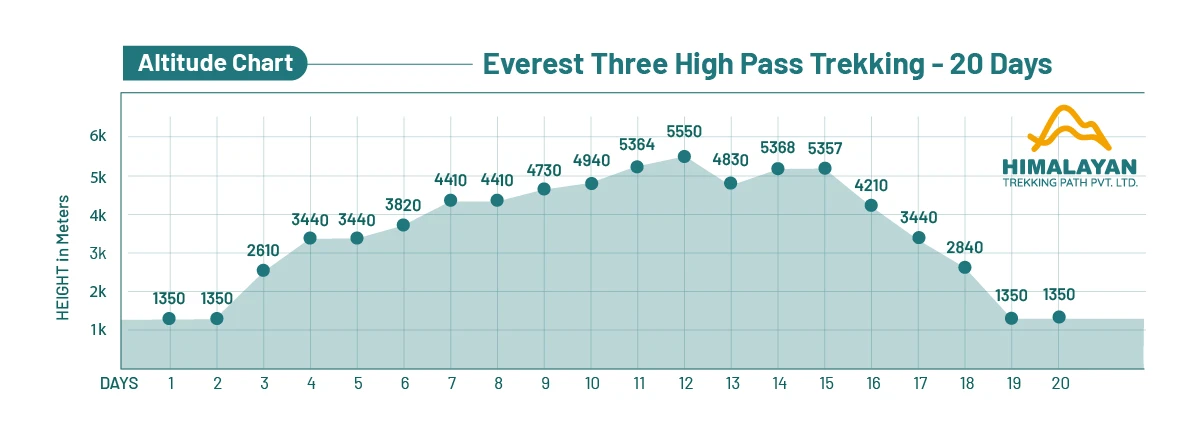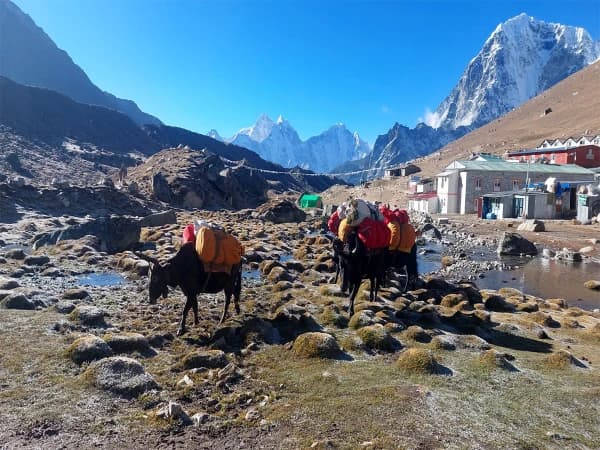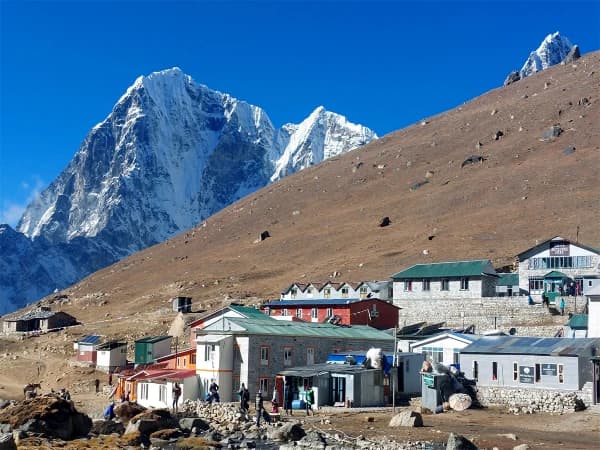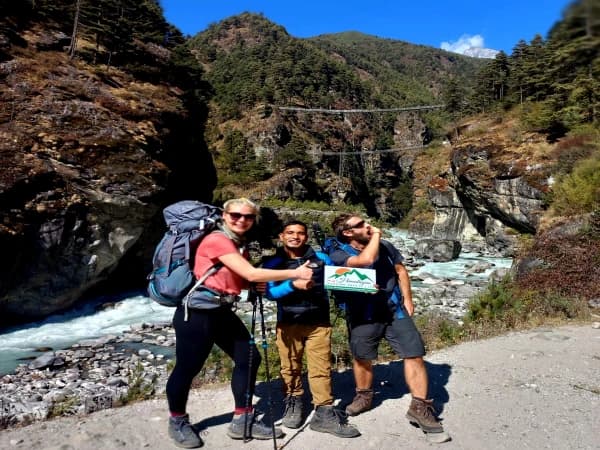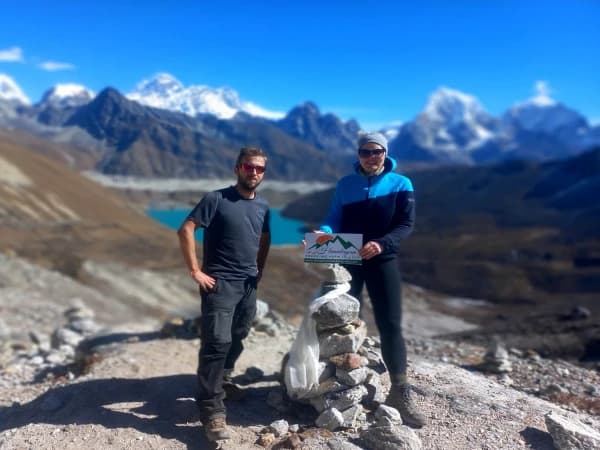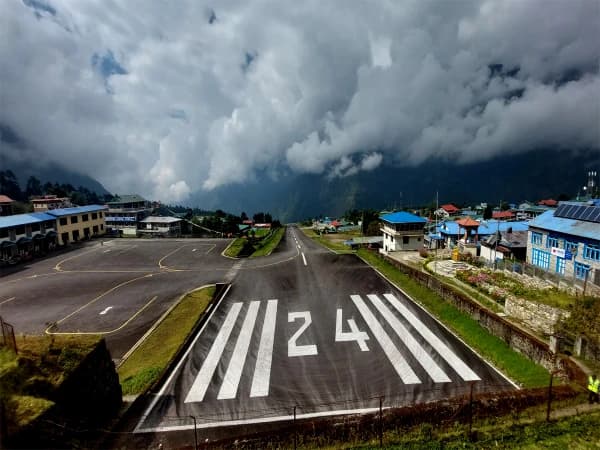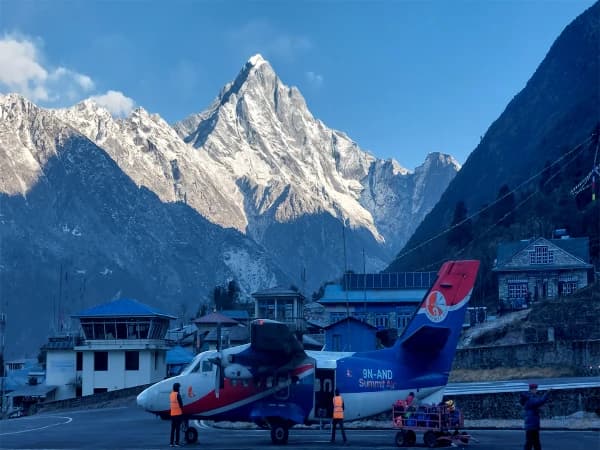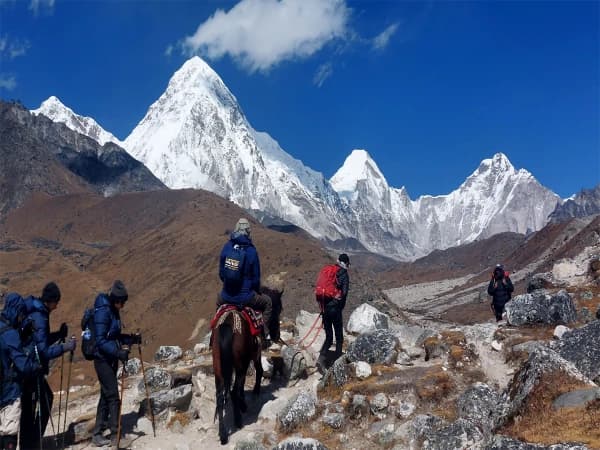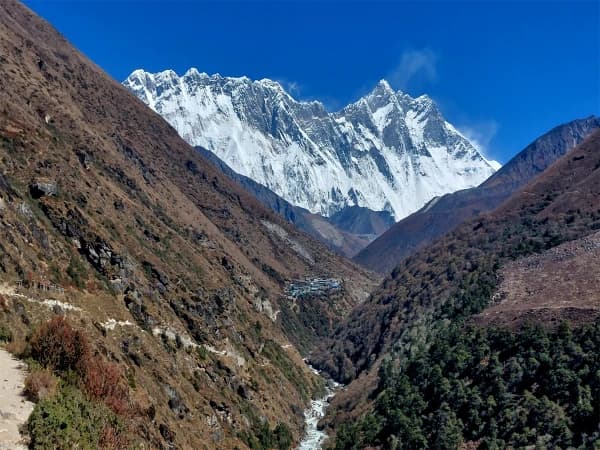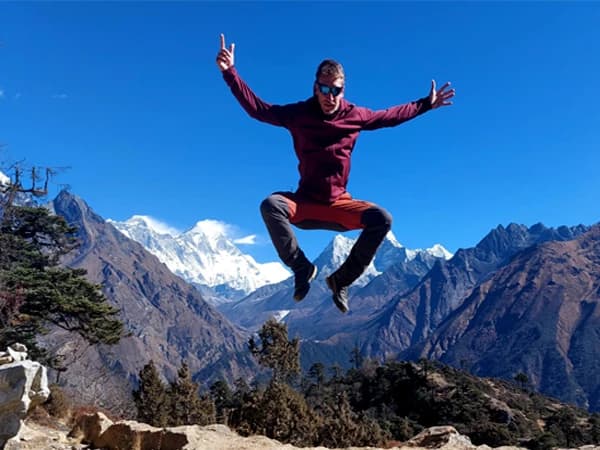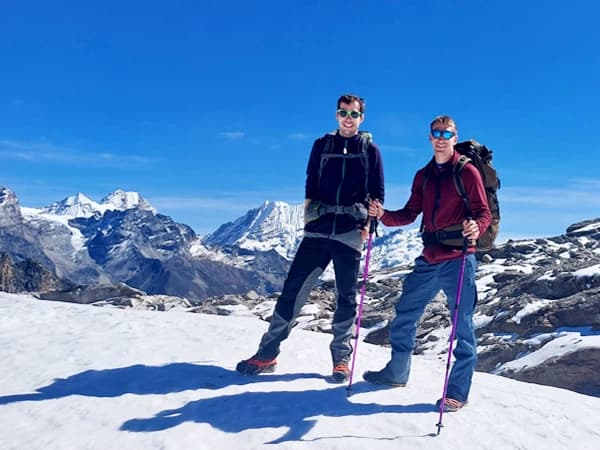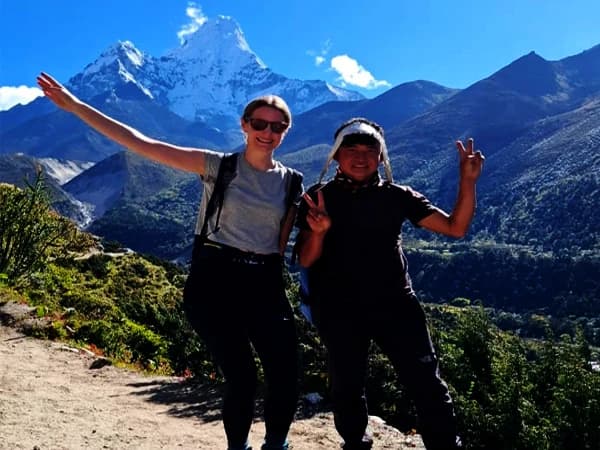Everest Three High Passes Trekking
Are you looking for an adventure-filled, high-altitude Himalayan walking holiday in Nepal? If yes, then the Himalayan Trekking Path offers you the best itinerary of trekking holiday package that consists of passes, Everest Base Camp, Kalapathar hike, diverse vegetation, monasteries, and Sherpa villages. The journey of the Everest Three High Passes Trekking in Nepal is one of the most adventurous walking holiday activities to do in Nepal. In addition, the trekking trip is momentous and legendary as it is inside an abode of the world’s tallest mountain, Mt. Everest (8848.86 m).
Trekking to the high-altitude places is safe when you are traveling with the locals, especially the Sherpa people. Therefore, booking the Everest Three High Passes Trekking package with the Himalayan Trekking Path worth much more than the trek investment as our trekking crew members are local Sherpa and Rai/Magar people from Solukhumbu district of Nepal.
Hightlights of Everest Three Pass Trek
- Explore the most thrilling and adventurous route of the Everest Base Camp Trek
- Discover the breathtaking Landscape of the Everest trekking region
- Immerse yourself in the rich Sherpa culture and lifestyle and the ancient Tibetan Monasteries
- Indulge in the local cuisine while staying at charming teahouses
- Traverse the majestic Khongma La Pass (5,535m), Chola La Pass (5,368m), and Renjo La Pass (5,338m)
- Embark on a hike to the iconic Kala Patthar viewpoint for panoramic views of snow-capped peaks, including Mt. Everest
- Marvel at the pristine Gokyo lakes, surrounded by stunning snowy cliffs
- Uncover fascinating artifacts at the Sherpa Museum
- Immerse yourself in the unique Himalayan cultures and savor delicious local dishes made from fresh ingredients
- Experience the Himalayas' serenity and its people's warmth - Create unforgettable memories in this enchanting region of Nepal.
- Travel with the local Sherpa and Rai Guide and collect the authentic experiences
Is High Pass Trek in Everest the most adventurous trekking trip to do in Nepal?
Yes, the Everest Three High Pass Trek is one of the most adventurous trekking trips to do in Nepal. However, the most challenging trek to do in Nepal is the Great Himalayan Trail. It is the longest trekking route of Nepal that encompasses all the Himalayan and Upper Hilly Belts from the East of Nepal to the West of Nepal. Besides GHT, there are other challenging trekking trips too like EBC Chola Pass Trek, Amphu Lapsha Trek, Ganja La pass Trek, etc.
Itinerary of Everest Three High Passes Trekking
There are two options to do the Everest Three High Passes Trekking in Nepal. The most popular one is the anti-clockwise route that includes the excursion of Everest Base Camp and crossing of Kong Ma La Pass in the first phase. However, the clockwise trekking includes the exploration of Thame village and crossing of Renjo la Pass in the first phase. The choice is yours as the challenging aspect is the same. Most of the Sherpa guides and mountain guides consider the clockwise trekking in the Everest Three High Passes Trekking as the most challenging in comparison to the anti-clockwise trekking. Therefore, the number of days in an anti-clockwise direction is more than the EBC Kong Ma La section. In about 20 days, you can explore almost every popular touristic destination of Khumbu region of Nepal. Major places of Khumbu region are Lukla, Namche, Tengboche, Pangboche, Dingboche, Chhukung, Kong Ma La, Lobuche, Gorakshep, Everest Base Camp, Kalapathar, Chola Pass, Gokyo Valley, Renjo La, and Thame village. These places are covered in the journey of the Everest Three Passes Trek. Therefore, itinerary of the Everest Three High Passes Trekking in Nepal with us is always captivating as well as fascinating.
Kong Ma La Pass is the first pass to cross in the three pass treks
After proper acclimatization in Dingboche Village by hiking the Nagarshan hill (5100 m), trekkers trek to Chhukung Village. In order to reach Lobuche, trekkers have to cross the iconic Kong Ma La Pass which is the longest pass, including an iconic icy lake as well as glacier walking sections. Our itinerary presents you the most iconic and highest pass to climb in the first section. Get the sights of almost all the mountains including mountains of Tibet from the top of the pass.
Trek to Everest Base Camp (5364m)
To reach the base camp of the world’s tallest mountain Mt. Everest is not an ordinary travel activity. In fact, it is the most momentous and splendid journey in your life as you will be leaving your footprints at the foothill of Mt. Everest. Trekkers have to trek for about 7 to 8 hours from Lobuche to reach Everest Base Camp (5364 m) via Gorakshep. If you wish to do Everest Base Camp Trek only then book our EBC Trek package. At just 1200 $, you can achieve this legendary travel moment.
Sunrise from Kalapathar during Everest Trek
Enjoy majestic sunrise from the top of Kalapathar (5545 m). This is the most famous activity to do from Gorakshep during the Everest trekking. The sight of sun kissing the tip of the snowy mountains is definitely a sight to behold. It inspires everyone with its majestic aura. In fact, you can have the orgasmic Himalayan feeling once you witness the sunrise from Kalapathar during Everest Trek. It takes about 1.5 hours to 2 hours to reach the top from Gorakshep.
How difficult is it to reach Gokyo Valley after crossing Chola Pass?
It is an arduous task to reach Gokyo Valley via Chola Pass. Originally, trekkers spend overnight in Thagnak from Dzongla including the crossing of the Chola Pass, but in our itinerary, you will have to trek further to Gokyo Valley. It is tiring but doable. Our team of Sherpa travel planners has done this trekking along with the trekkers! Therefore, trekking by following our itinerary is safe and secured! If you are physically fit then you can do this crossing easily.
Gokyo Lake and Gokyo Ri Hike
There are five lakes in the Gokyo Lake system. The blue turquoise lake, which is the third lake offers great Himalayan Lake exploration moments. Apart from the exploration of Gokyo Lakes, the hike of Gokyo ri offers great scenery of mountains including the sight of Mt. Makalu. If you wish to visit this place exclusively then book our Gokyo Valley Trekking package.
Crossing Renjo La Pass in Everest
Among the three high passes of the remarkable Everest Three High Passes Trekking trip, Renjo La Pass is the lowest altitude pass. Therefore, it is easy to cross as trekkers have already crossed and reached the maximum height of 5545 m before doing the crossing. The trail is rocky and full of pebbles! Upon crossing the pass, trekkers can explore the famous village of Thame. Do you know that the Thame Village is the famous Sherpa Village that has at least one Everest Summiteer. Thame village is between Namche Bazaar and Marlung Village that is located in the foothill of the Renjo La Pass.
Low Cost Three Pass Trek in Everest
Book the low cost Three Pass Trek in Everest. Don’t underestimate the trekking trip if it says low cost. It is because our trekking trip comprises the services that are top notch and full of impeccable hospitality. At just 1700 $, knit the most fulfilling trekking trip inside the Khumbu region of Nepal.
Our expert travel planners, consisting of Sherpa team members, have knitted the best itineraries of Everest Region trekking. Please go through all our trekking trips and contact our travel planners. We will ensure that you can get the best Everest Trekking packages at reasonable prices.
What is the cost of the Everest High Passes Trek?
20-Day Everest Three High Pass Trek costs from USD 1,700 to USD 2,200 per person depending on the Group Size. Are you looking for the best local company to trek with a local Sherpa and Rai Guide? Your search ends here!, Himalayan Trekking Path is the best local company where you get a comprehensive Three Pass Trek Package at a reasonable cost. The cost of the Three Pass Trek depends on the group size, Duration, Services, logistics, and management formalities. Therefore, our finest Three Pass Trek package provides all services from arrival to departure, covering the entire service as mentioned in the package. While we typically operate private treks, we can arrange for group trips if desired. Please note that traveling in a small group or solo will generally result in a higher cost compared to a big group trek. Hence, the company motto is to offer this remarkable Three Pass trek at a reasonable cost without compromising on service. We assure you that if you place your trust in us, we will deliver value for your investment.
Here is the best outlined cost of the Everest Three Pass trek for 2025-2026!
- Solo travelers can enjoy the Everest Three Pass Trek for USD 2200
- For a group of 2–6 people, the cost for the Everest Three Pass Trek is USD 1900 per person
- Groups of 7–10 individuals can avail themselves of the Everest Three Pass Trek at a discounted rate of USD 1700 per person.

